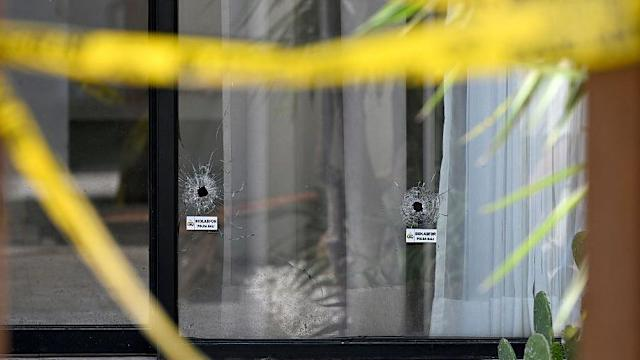Los Angeles, May 2025 — Once vilified as cold-blooded killers, Lyle and Erik Menendez — convicted in 1996 for murdering their wealthy parents in their Beverly Hills mansion — are now at the center of a national debate, with renewed sympathy and support pushing them closer to potential freedom.
A Los Angeles judge this week resentenced the Menendez brothers, reducing their life sentences to include the possibility of parole. A parole board hearing is set for June, which could see the brothers walk free after more than three decades in prison.
The 1989 Double Homicide
On a summer night in 1989, 21-year-old Lyle and 18-year-old Erik Menendez entered their family living room with loaded shotguns and killed their parents, Jose and Kitty Menendez, while they were watching television. The brutal crime — involving 16 shots — stunned the nation and remained unsolved for months.
The brothers told police the mafia might be responsible, while simultaneously spending nearly $700,000 on luxury goods, including cars, watches, and vacations. Their alibi unraveled after Erik confessed the crime to a psychologist — a confession that ultimately led to their arrest.
Trials, Mockery, and Life Sentences
In the courtroom and media, the Menendez brothers were portrayed as spoiled, greedy, and remorseless. The first trial ended in a mistrial; the second resulted in life sentences without parole in 1996.
Their defense claimed years of sexual abuse at the hands of their father, a former RCA Records executive, but it was widely dismissed at the time. Prosecutors called it the “abuse excuse,” while late-night comedians and even the Academy Awards made light of their claims.
A Shift in Public Opinion
Fast forward to 2025, and the narrative is shifting. A combination of Netflix dramas, true crime documentaries, TikTok discussions, and support from high-profile advocates like Kim Kardashian has introduced the case to a younger audience.
Kim Kardashian, a criminal justice reform advocate, wrote in an op-ed that the brothers’ experiences should be reconsidered in light of modern understandings of trauma, particularly male victims of sexual abuse — a topic that was taboo in the 1990s.
Experts like Prof. Whitney Phillips from the University of Oregon attribute the growing support to broader societal changes following the #MeToo movement and a reevaluation of how abuse and trauma are perceived.
New Evidence Brings Fresh Momentum
The release of a 2023 documentary revealed new allegations, including claims from a former Menudo boy band member that Jose Menendez had sexually abused him. This claim, combined with an unearthed letter Erik wrote as a teen describing the abuse, has lent weight to the brothers’ long-denied narrative.
Journalist Robert Rand, who has closely followed the case since its beginning, described the cultural shift as “a hurricane of support” powered by social media and evolving views on justice.
Life Behind Bars
In prison, both brothers have led nonviolent and productive lives. Erik Menendez launched a hospice program for elderly inmates, while Lyle worked on prison beautification and inmate education programs. Although they have minor infractions — including possession of contraband cell phones — their conduct has been largely positive.
Notably, every surviving member of the Menendez family, including aunts, uncles, and cousins, have publicly voiced support for their release.
Governor Newsom Holds Final Say
If the California Parole Board recommends release next month, Governor Gavin Newsom will have 30 days to approve or deny the decision.
Newsom, considered a potential 2028 U.S. presidential candidate, has acknowledged the sensitivity of the case. In a February TikTok video, he said the key question is whether the brothers “pose an unreasonable risk to public safety.”
Though Newsom ordered a comprehensive risk assessment before granting parole eligibility, he’s also blocked high-profile parole releases in the past — including that of Sirhan Sirhan, the convicted assassin of Robert F. Kennedy.
Legal experts say Newsom may rely on recommendations from the parole board and judiciary to avoid direct political backlash.
What Happens Next?
Should the parole board approve release and Newsom not intervene, the brothers could be free within five months, according to the California Department of Corrections.
For Lyle Menendez, hope has returned.
“I’m not as hopeless as I was as a 21-year-old,” he told the court. “Society seems to be understanding these experiences and sexual abuse better.”
As the world watches, the Menendez case is now not only a study in crime, but also a reflection of how justice evolves with changing times.
For more in-depth coverage of justice reform, society, and true crime stories, visit BlogHear.com — where unheard voices find their platform.




